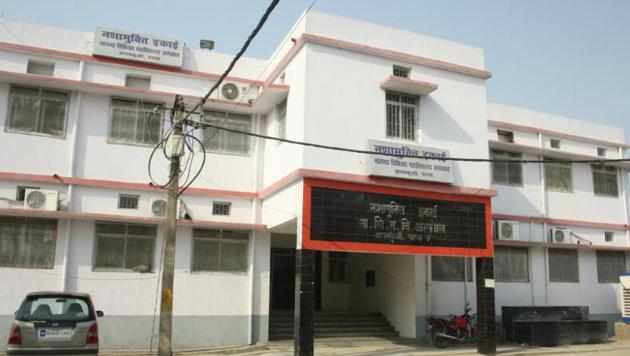More druggies than alcoholics at Bihar liquor de-addiction centres
A year after complete ban on liquor was imposed in Bihar, on April 5, 2016, most of the over 10,000 alcohol addicts, who registered at 39 de-addiction centres of the state, are nowhere to be found.
In the year since a complete ban on sale and consumption of alcohol was imposed in Bihar on April 5, 2016, official records show 10,072 people reported at 39 alcohol de-addiction centres opened across the state for management and treatment of problems arising out of alcoholism.

A quick check of their status ahead of the first anniversary of the liquor ban, showed surprising results. Officials running the de-addiction centres revealed a majority of the patients, who turned up at the centres, sought treatment for addiction not to alcohol but to substances other than alcohol.
“We found most of those returning up at our alcohol de-addiction centres dependent on poly substances, which largely included cannabis, solvents, drugs and various forms of tobacco products”, . said an official closely associated with the programme.
And, by the end of last month, a vast majority of deemed alcohol addicts seemed to have vanished into the thin air. As against the total 645 beds available at the de-addiction centres across the state, only 174 beds were found occupied on March 30. Out of the patients occupying these beds, only a very few were confirmed alcoholics.
Again, on April 6, 25 patients were undergoing treatment in the inpatient department of a de-addiction referral unit operating at Patna’s Nalanda Medical College Hospital (NMCH). Enquiries revealed that none of them was an alcoholic.
“These patients are being treated for addiction to substances other than liquor. They are either dependent on cannabis or drugs or on any of the various tobacco products,” said the nodal officer of the unit and assistant professor of psychiatry, Dr Santosh Kumar.
“We hardly receive patients, who are alcohol dependent,” he added.
Patients from district centres are referred to the NMCH unit for treatment of complicated cases.
State programme officer, de-addiction, Dr AK Shahi also admitted that most of the people now reporting at the centres were addicted to substances other than liquor.
This apparently prompted the Bihar government to send recently a 19-member team of doctors to the National Institute of Mental Health and Neuro Sciences (NIMHANS), Bangalore, for getting training to treat patients for abuse of not alcohol but substances like cannabis, solvents, drugs and tobacco products.
Now, doctors manning the centres are trying to figure out whether when deprived of liquor the alcoholics moved on to other intoxicants or they are clandestinely managing to get their daily dose of liquor.
Some doctors feel that though the government had created infrastructure for de-addiction centres, the lack of required trained personnel had handicapped their functioning, making them incapable of providing relief to the liquor addicts.
Normally, de-addiction falls in the domain of psychiatry but a majority of these centres are without psychiatric help.
Another view is that the de-addiction centres opened at district headquarters had failed to reach alcoholics living in the villages, mostly poor and lacking in the necessary wherewithal to visit the de-addiction centres for treatment.





